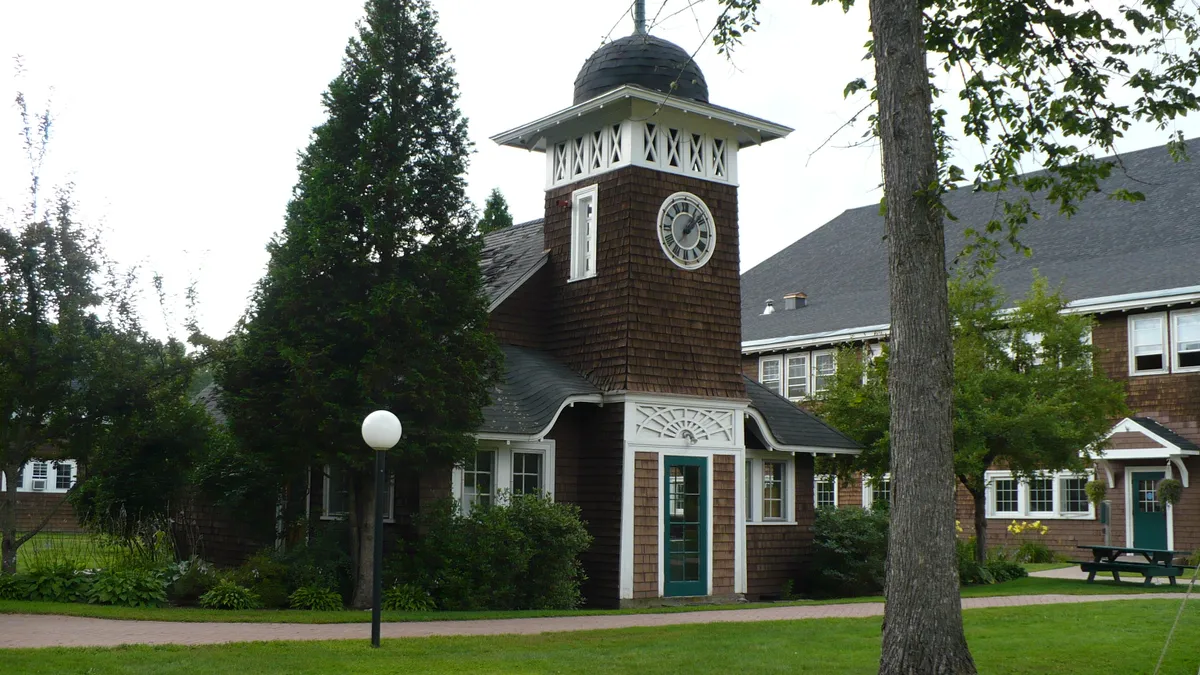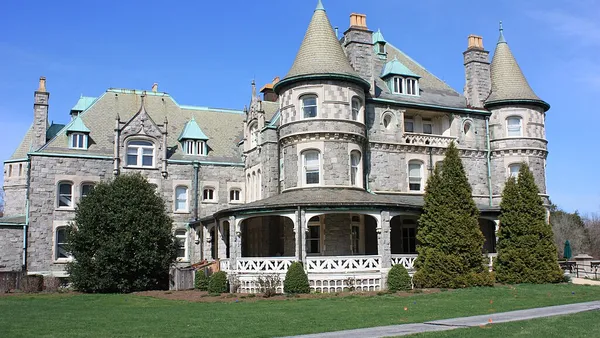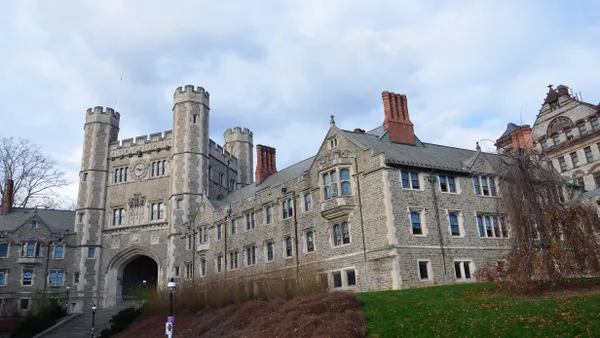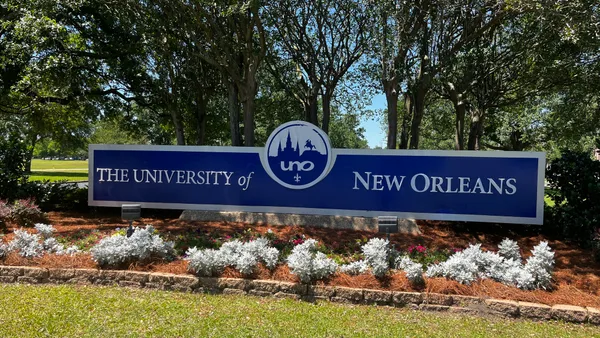Dive Brief:
- Goddard College, a small, private nonprofit institution in Vermont, is moving its classes entirely online for the coming academic year and laying off staff in order to remain operational.
- Goddard administrators detailed the changes in a Jan. 19 letter to the campus community Friday, pointing to enrollment declines — particularly in its on-campus residency programs — as one reason it was shifting to exclusively virtual instruction. The letter did not specify the scope of staff layoffs, but local news reports indicate they will affect about a dozen employees.
- The college will “continue to explore a series of possibilities,” about its future, including potentially reopening the campus for fall 2025, the letter said. It also referenced possible “partnership opportunities” in which Goddard’s residencies would be hosted elsewhere.
Dive Insight:
Goddard’s problems raise the question of its survival, as in the last year several similarly situated private nonprofit colleges have either folded or cut back to stave off financial doom. These include Finlandia University, in Michigan, and Hodges University, in Florida, both of which closed.
Several public institutions have also recently scaled back degree programs and shed staff in the face of financial distress.
The Vermont institution has lost hundreds of students in roughly a decade, with enrollment dropping from 592 in fall 2013 to 320 in fall 2022, according to federal data.
Goddard has also suffered with inflation rising and increased maintenance costs, making it “progressively more difficult to maintain a fully operational campus for the fewer and fewer students choosing the in-person residency option,” according to Friday's letter.
Despite the troubles, Goddard’s president, Dan Hocoy, denied the college would close in an interview with local news outlet Seven Days. A Goddard representative provided Friday’s letter in a response to a series of questions from Higher Ed Dive about the college’s moves.
The letter said about two-thirds of Goddard students were enrolled virtually. The changes Goddard is pursuing will also allow it to consider other instructional options, including asynchronous online learning and certificates, it said.
“We have already begun discussing with faculty how this might impact future residencies and how we might evolve Goddard’s unique individualized pedagogical approach,” the letter said.
Financial difficulties are nothing new for Goddard, which in 2002 significantly reduced its residency options amid budget troubles. The college touts itself as experimental, blending brief on-campus experiences with distance learning.
More recently, in 2018, Goddard’s accreditor placed it on probation, demanding the college correct its finances and stabilize its leadership. The New England Commission of Higher Education lifted that sanction in 2020. However in 2022, NECHE told Goddard its accreditation could be jeopardized “if current conditions continue or worsen.”
“Goddard College will be closely monitored by the Commission, including through a progress report in April 2023 on the institution’s financial status, with particular focus on reaching its enrollment goals and developing contingency plans to address enrollment shortfalls,” NECHE and the college said in a joint statement last year.
NECHE President Larry Schall said in an email Tuesday the accreditor has a process for approving online-only instruction but that it has not been completed for Goddard.














